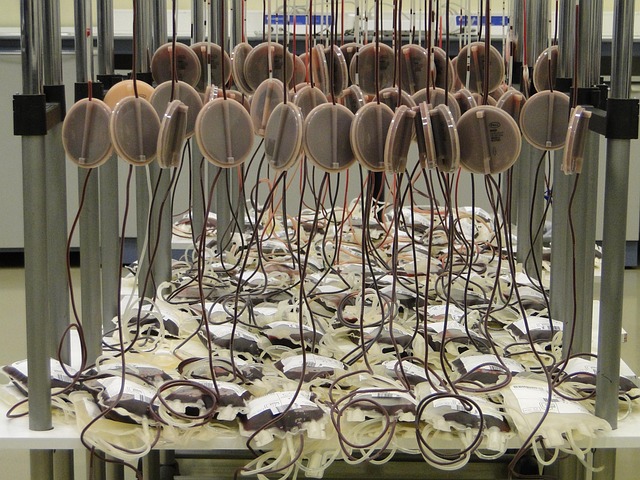Egg donation for ovarian surgery patients offers hope and fertility solutions. It involves careful legal navigation, strict regulations on screening, consent, compensation, and confidentiality to protect donors and recipients. Ethical considerations balance medical necessity with emotional welfare, emphasizing informed donor consent, psychological well-being, and meticulous management of relationships between donor and recipient.
“Exploring the legal landscape surrounding egg donation for ovarian surgery patients is paramount in ensuring ethical practices and patient protection. This comprehensive guide delves into the intricate details of understanding egg donation, navigating regulatory frameworks, and addressing rights and consent. We examine the emotional implications and ethical considerations that come into play, providing a nuanced perspective on this life-altering process for both donors and recipients. By exploring these aspects, we aim to highlight the importance of legal oversight in fostering a safe and supportive environment for egg donor for ovarian surgery patients.”
Understanding Egg Donation for Ovarian Surgery
Egg donation plays a crucial role in providing hope and fertility solutions for patients undergoing ovarian surgery. For many individuals facing ovary-related issues, egg donation is an essential component of their reproductive journey. Understanding this process is vital for both donors and recipients, especially when considering the legal aspects involved.
In the context of ovarian surgery patients, egg donation involves a generous act where a healthy individual (the donor) offers her eggs to another person or couple who cannot conceive naturally. This procedure offers a game-changer solution, allowing those with ovary damage or dysfunction to explore parenthood. Legal considerations are paramount to ensure the safety and rights of all parties involved, including donors, recipients, and their future children.
Legal Framework and Regulations Governing Donation
The legal framework governing egg donation for ovarian surgery patients is a complex area that varies significantly across jurisdictions. In many countries, egg donation is strictly regulated to protect both donors and recipients while ensuring ethical practices. These regulations typically include comprehensive screening processes for potential donors, including medical history reviews, genetic testing, and psychological evaluations. The primary goal is to safeguard the health and well-being of the donor and the future child.
For egg donor for ovarian surgery patients, understanding these legal considerations is paramount. Regulations often dictate the rights and responsibilities of both parties, outlining issues such as consent, confidentiality, and compensation. Additionally, they may specify the criteria for donor eligibility, the number of donations allowed, and the period during which a donor can remain anonymous. These laws ensure that the process is fair, transparent, and respectful of all involved, fostering trust and promoting safe practices in reproductive medicine.
Rights and Consent of Both Donor and Recipient
When considering an egg donor for ovarian surgery, both the donor and recipient have distinct rights and consent requirements that must be respected and understood. The donation process involves a complex legal framework to safeguard the interests of all parties involved. The potential donor must provide informed consent, voluntarily agreeing to undergo the medical procedures and donate her eggs. This includes fully comprehending the risks and benefits associated with egg donation.
Similarly, the recipient patient’s rights are paramount. They have the right to know detailed information about the donor, including her medical history and any genetic predispositions, to make an informed decision about proceeding with the treatment. Legal agreements ensure that both individuals understand their consent, ensuring a transparent and ethical process for egg donation in the context of ovarian surgery patients.
Ethical Considerations and Emotional Impact
The ethical considerations surrounding egg donation for ovarian surgery patients are complex, balancing the patient’s need for treatment with the potential emotional and psychological impacts on both donor and recipient. It’s crucial to ensure informed consent from donors, who should be fully aware of the procedures and implications, including the possibility of physical and emotional risks. The relationship between donor and recipient must also be carefully managed; while fostering connection can be beneficial, it may lead to unexpected emotional entanglements that require sensitive navigation.
The emotional impact on egg donor for ovarian surgery patients is profound. Donor candidates should expect a range of feelings, from altruism and satisfaction at contributing to another’s fertility journey to anxiety or even guilt. Supporting donors through this process with counseling and aftercare services can help mitigate potential psychological complications and ensure their well-being alongside the patient’s.
When exploring egg donation for ovarian surgery patients, understanding the intricate legal landscape is paramount. From the regulatory framework governing the process to ensuring informed consent and addressing ethical considerations, each step must be carefully navigated. This comprehensive guide highlights the essential aspects, emphasizing the importance of legal compliance in fostering a supportive environment for both the donor and recipient, ultimately facilitating successful outcomes for egg donor for ovarian surgery patients.
